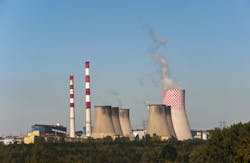Burning gas instead of coal has little impact on carbon emissions
Abundant supplies of natural gas in the United States have been hailed by many as a way to help the country lower its harmful emissions from power generation and pave the way to a clean energy future.
President Barack Obama said during his 2014 State of the Union address that natural gas had the potential to act as a "bridge fuel" that provides power with less of the carbon pollution that causes climate change.
But things are rarely as good as they seem, and new research casts doubt on that claim.
The study, published on Wednesday in the journal Environmental Research Letters, found that switching from coal to natural gas for generating electricity will do little to reduce U.S. greenhouse gas emissions, partly because it will slow down the transition to carbon-free renewable energy.
Researchers at the University of California, Irvine; Stanford University; and nonprofit group Near Zero modeled the effect of different levels of gas supply on the U.S. power sector and greenhouse gas emissions. Results showed that abundant natural gas decreases use of both coal and renewable energy technologies in the future. Moreover, in the absence of climate policies, overall electricity use rises as the gas supply increases.
With increased electricity consumption and reduced deployment of lower-carbon renewable energy, the effect of higher gas supplies on harmful emissions is small.
The study's lead author, Christine Shearer, told the Huffington Post that natural gas could instead be viewed as a way to provide backup power for renewable sources of energy such as wind and solar. The results of the research point to the consequences of "building a new generation of fossil fuel plants that will lock us into decades more fossil use that is hard to transition out of," she added.
